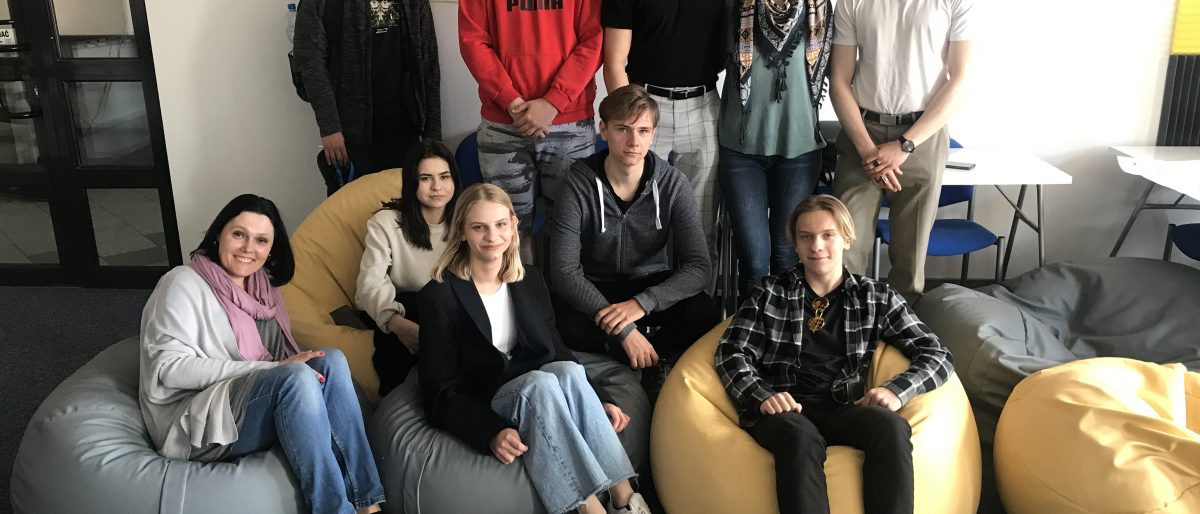We have recently completed the process of school participatory budget, which has been carried out as a part of the project in Infotech Schools in Białystok. Students, together with the teaching staff, decided which projects they would spend 3000 PLN on. The process was implemented almost entirely online, as due to the coronavirus outbreak, learning at school took place remotely.
Activities began in February with the initiation meeting for those people interested in coordinating a school budget, as this was the first time the school had encountered the idea. The workshop aimed at explaining what the school budget is, which values it implements and what the phases of the school budget are. It also introduced the role of a coordinating team and specific tasks they will have to perform. The selected coordinating team consisted of 10 male and female pupils and two adults (one teacher and a pupil’s coordinator).
The next step after the selection of the coordinating team was to organize the workshop to integrate the team and to work out assumptions of the school budget, its purpose, its timetable and to share the tasks within the team. We were very pleased of being able to work directly at school.
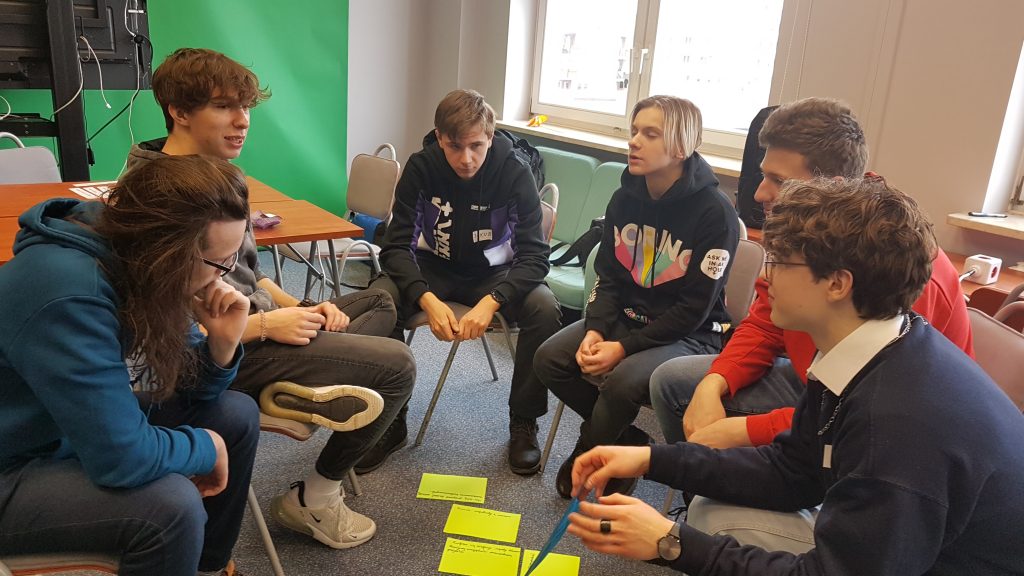
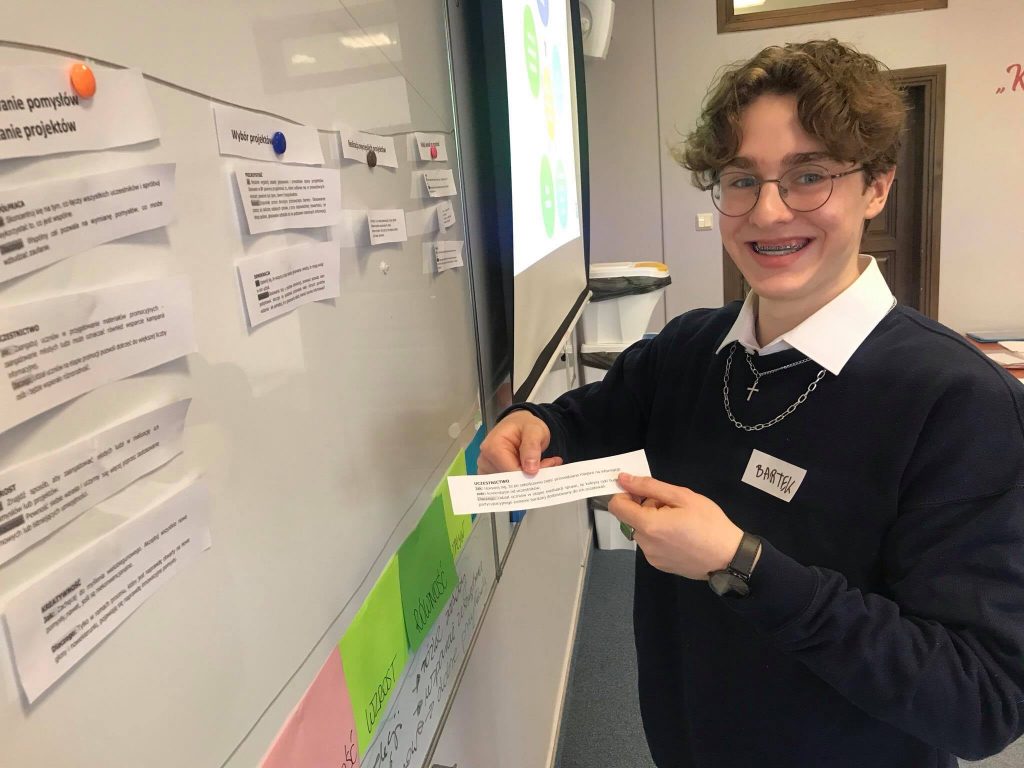
Online lessons about the school budget also started in February. All classes took part in online lessons, with a total of around 150 participants. During the lessons, the trainer provided basic knowledge about the school budget and announced its implementation at school. She also encouraged to participate in the school budget. The evaluation survey was conducted after each lesson.
As the pupils were not at school at that time, the best opportunity to create space for generating ideas was to organise special education hours dedicated to this process. The trainer held an online tutoring meeting for tutors. Then tutors carried out lessons in their classes based on the scenario prepared by the trainer.
When the call for projects was launched, there was also the online assembly prepared by pupils from the coordinating team, during which all the rules and the course of the school budget process were explained (https://www.youtube.com/watch?v=ykjIhXbQMxc&t=494s).
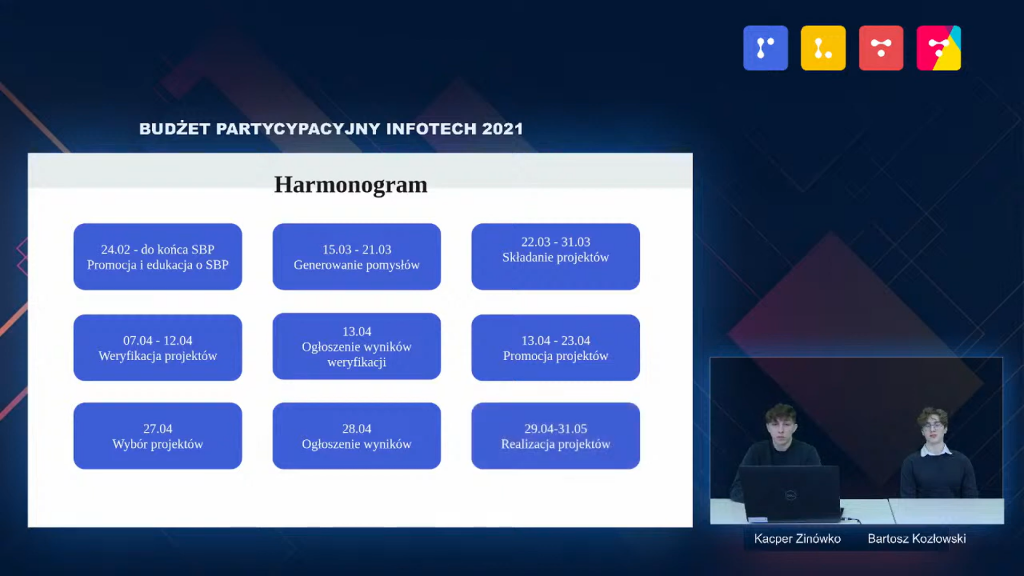
The pupils submitted 5 projects – they were mainly related to the development of a part of the school for recreational or educational purposes.
The coordinating team checked the correctness of the projects in the light of the adopted rules. If necessary, the authors could make the necessary corrections and additions.
Afterwards, the meeting was organized with the project authors to determine together how the projects would be promoted. It was agreed that there would be the online presentation of all projects during the assembly. Projects were also promoted via the school’s Facebook profile. Each day one project was presented. Authors of projects, with the support of teachers, prepared posters and promotional texts.
On 27th May voting took place on online (via a Google form). 151 people took part in voting, including students, teaching and administrative staff. This represents 56% of the total number of people eligible to vote. The winning project is the ‘relaxing zone’ located in the school corridor, including: puffs, a table football set, an air hockey table and board games. The equipment was purchased at the end of the school year.
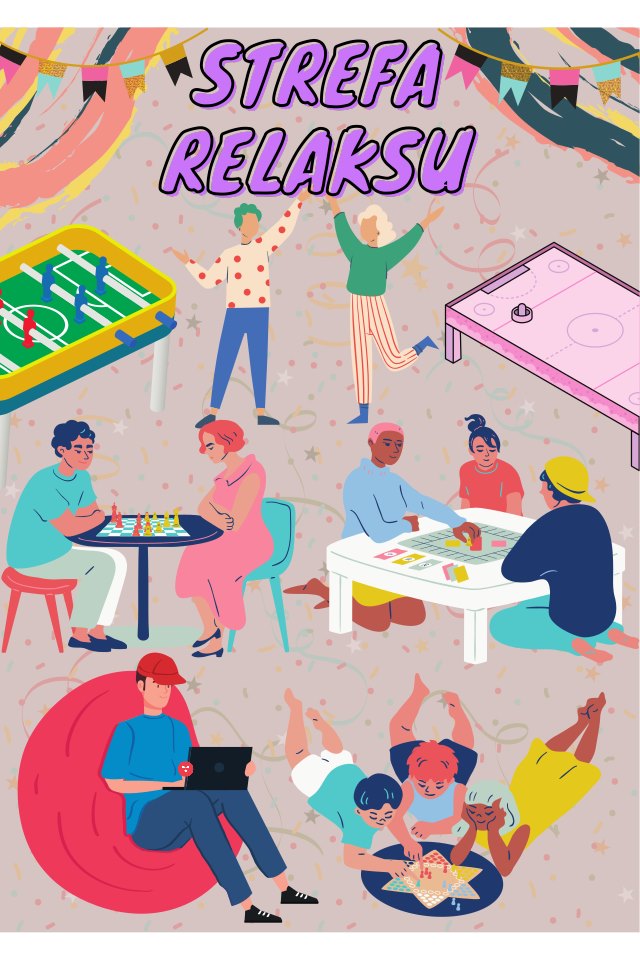
At the end of the process, the evaluation workshop was organised for the coordination team. Again it was a moment for everyone to meet in person. Within a few hours, we analysed the key stages of the school budget, we reflected on what was successful and what should be changed in the next edition. It was also important to answer the question to what extent the school budget process achieved the values such as impact, development, transparency, equality or learning.
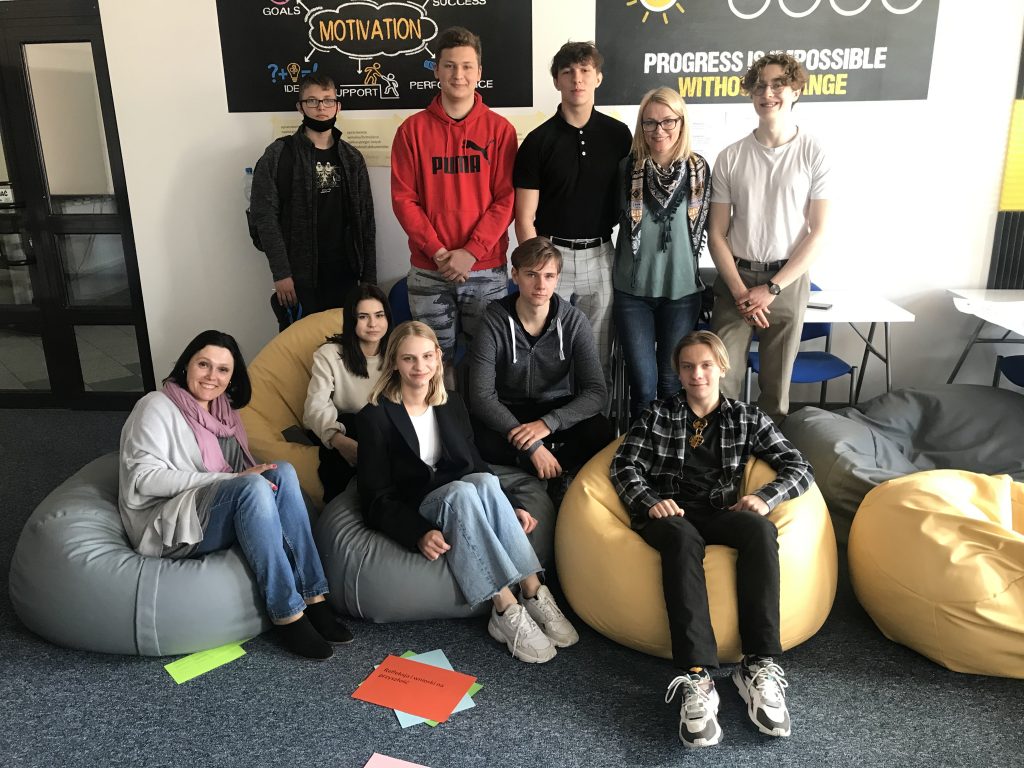
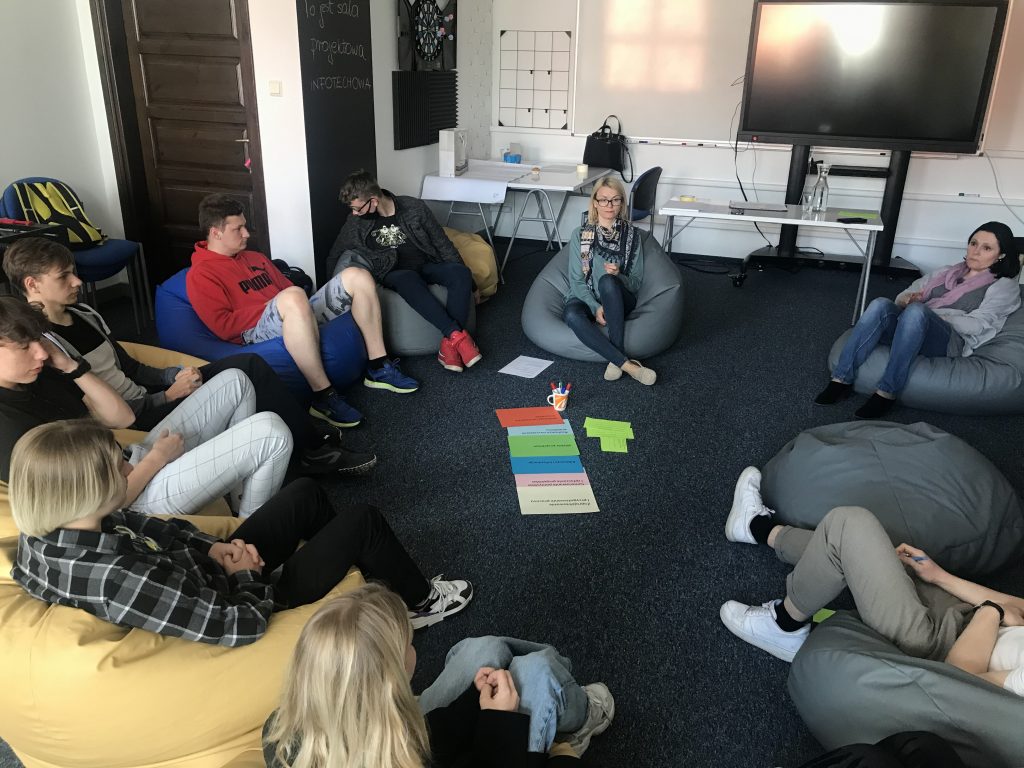
Students summarised what they had learnt and gained through their involvement in the coordination team. The members of the coordinating team were given thanks in the form of diplomas.
Photos taken by: Natalia Kotowska, Agnieszka Maszkowska
